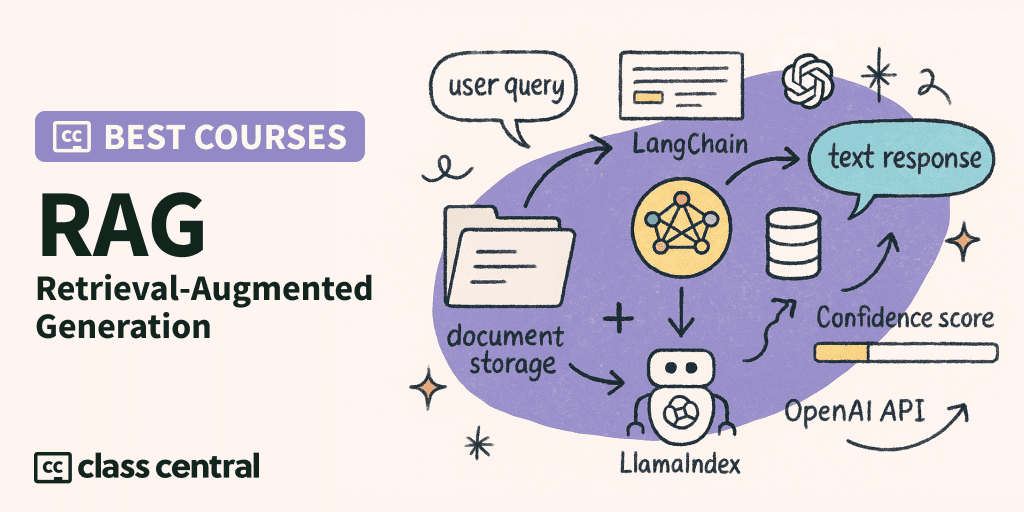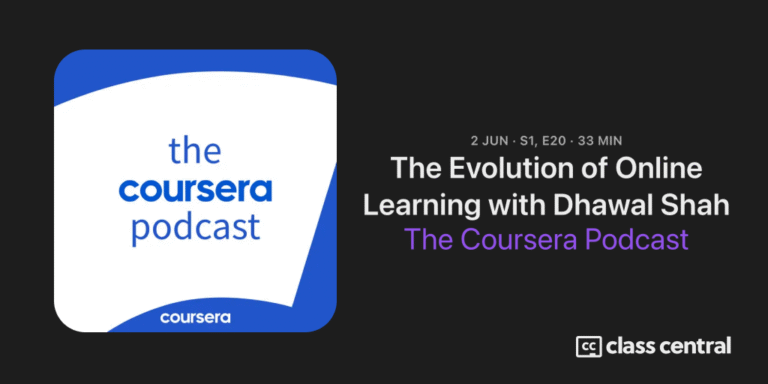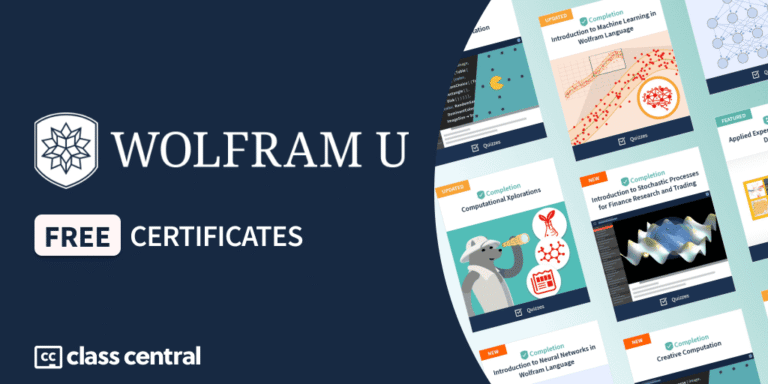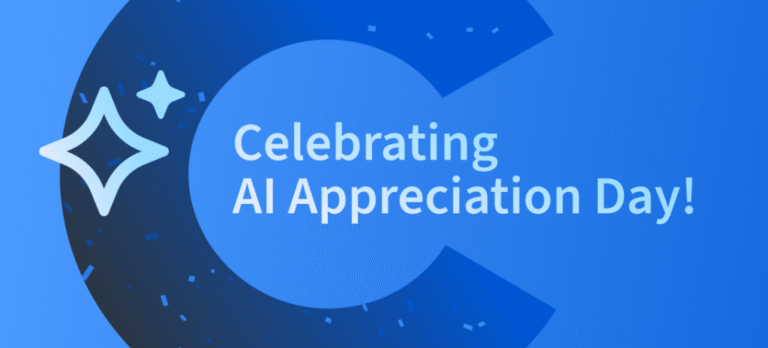

Retrieval-Augmented Generation (RAG) has become the go-to technique for building AI applications that can access and reason over your own data. By combining LLMs (Large Language Models) with external knowledge sources, RAG enables chatbots, document analyzers, and AI assistants that provide accurate, cited responses instead of hallucinations. As companies race to implement RAG systems, the demand for engineers and developers with these skills has increased.
This guide presents the best online courses for learning RAG, from free two-hour tutorials to comprehensive programs covering advanced topics including multimodal and Graph RAG. Whether you’re a beginner seeking no-code options or an experienced dev ready to tackle production deployment, we’ve found courses taught by experts from IBM, Intel, LangChain, and LlamaIndex.
If you’re new to the underlying concepts, check out our guides on embeddings, vector databases, prompt engineering and machine learning.
Click on the shortcuts for more details:
- Top Picks
- What is Retrieval-Augmented Generation (RAG)?
- Why are RAG Skills Important?
- Courses Overview
- Why You Should Trust Us
- How We Made Our Picks and Tested Them
Here are our top picks
Click to skip to the course details:
What is Retrieval-Augmented Generation (RAG)?
Retrieval-Augmented Generation (RAG) is a hybrid AI architecture that enhances LLMs (Large Language Models) by connecting them to external knowledge sources. Instead of relying solely on what an LLM learned during training, RAG systems search through databases or documents to find relevant information, then use that context to generate more accurate, up-to-date responses. Think of it as giving ChatGPT access to your company’s specific documents or a constantly updated Wikipedia.
A RAG system consists of three key components: a retriever that searches through your knowledge base, a vector database storing document embeddings for fast semantic search, and a generator (the LLM) that creates responses using both its training and the retrieved information. This architecture solves critical LLM limitations: outdated knowledge, hallucinations, and inability to access proprietary data. Perplexity AI, GitHub Copilot, Microsoft Azure, and similar companies use RAG to power their AI applications.
Why are RAG Skills Important?
The demand for RAG expertise reflects a fundamental shift in how companies deploy AI. Organizations need engineers who can build systems that reason over proprietary data while maintaining accuracy and citing sources. According to ZipRecruiter, Machine Learning Engineers earn an average of $128,769 annually, with experienced professionals making up to $178,000. Entry-level ML engineers start around $69,000, with most earning between $51,500-$78,500.
RAG skills are crucial because they enable:
- Building AI applications grounded in real, verifiable data
- Creating chatbots and assistants that access company-specific information
- Reducing AI hallucinations through source-based responses
- Updating AI knowledge without expensive model retraining
- Developing transparent systems that cite their sources
- Implementing cost-effective alternatives to fine-tuning for every use case
Common job titles requiring RAG expertise include ML Engineer, AI Data Engineer, AI Research Scientist, NLP Engineer, LLM Engineer, and AI Solutions Architect. As more companies adopt AI, the ability to implement RAG systems effectively has become a critical differentiator in the job market.
Why You Should Trust Us
Class Central has spent over a decade helping 100 million learners find their next online course. We’ve built the world’s largest search engine for online education with 250,000 courses and 250,000 reviews from real students. Our team has collectively completed over 400 online courses, including online degrees, giving us firsthand experience with what makes a great learning experience.
How We Made Our Picks and Tested Them
We started by analyzing hundreds of RAG-related courses across major platforms including Coursera, Udemy, edX, and specialized sites such as DeepLearning.AI. Our selection process focused on several key criteria:
Course Quality: We prioritized courses with ratings above 4.5/5 and substantial enrollments. We checked hundreds of student reviews to identify common strengths and weaknesses, paying special attention to whether students successfully built working RAG systems after completion.
Instructor Expertise: We selected courses taught by recognized experts – from framework creators (Harrison Chase – LangChain) to researchers at companies actively developing RAG technology (Intel Labs, IBM). Industry credentials and teaching experience both factored into our decisions.
Practical Application: Every course in our guide includes hands-on projects. We avoided purely theoretical courses in favor of those where students build real RAG applications, from chatbots to document analysis systems.
Coverage and Depth: We ensured our selection covers the full spectrum – from 1.5-hour free tutorials for beginners to 40-hour comprehensive programs for those seeking expertise. We included specialized topics like multimodal RAG and Graph RAG for advanced learners.
Currency: RAG is a rapidly evolving field. We verified that courses were recently updated (most in 2024-2025) and checked whether they cover current best practices and tools. Courses using outdated approaches or deprecated libraries were excluded.
We also tested several of the free courses ourselves, verifying that the code examples work and that beginners can actually follow along. For paid courses, we analyzed syllabi, preview videos, and gathered feedback from learners’ reviews.
Courses Overview
- Total courses covered: 10 courses across 6 platforms
- Free courses: 6 courses from DeepLearning.AI, YouTube, Udemy, and Coursera
- Course length range: 1.5 hours to 40 hours
- Most-represented platforms: Udemy (3 courses) and DeepLearning.AI (3 courses)
Best Free RAG Course with LLMWare (Udemy)
If you’re a total beginner in RAG development and want to get started right away, this free Udemy course offers a practical intro to RAG using the open-source LLMWare library. It teaches how to build RAG pipelines for business automation, including contract analysis using the BLING model – a lightweight 1B parameter model optimized for enterprise tasks such as document analysis and question-answering on business data.
You’ll need basic Python knowledge to follow along. The course uses LLMWare’s integrated framework, which simplifies the development process by providing pre-built components for document processing and model integration.
In this course, you’ll learn:
- How to parse and chunk documents (PDFs, Word, Excel) for RAG systems
- Creating embeddings with Hugging Face models for semantic search
- Building text queries, semantic queries, and multi-step hybrid retrieval
- Running quantized models locally without expensive GPU requirements
- Implementing RAG for real business use cases like contract analysis
- Exporting query results for auditing and further processing
| Provider | Udemy |
| Framework | LLMWare |
| Instructor | Darren Oberst |
| Workload | 1-2 hours |
| Enrollment | 1.5K |
| Rating | 4.7 (49) |
| Cost | Free |
| Quizzes/Assessment Items | Code examples and tutorials on Github |
| Certificate | None |
Most Comprehensive RAG Course with LangChain, FAISS and OpenAI API (Udemy)
If you want comprehensive coverage, this 40-hour course is worth the investment. Unlike the quick introductions we’ve covered so far, this course takes you from the fundamentals all the way to advanced topics including multimodal RAG (handling text, audio, and images) and agentic RAG systems that can autonomously manage complex tasks.
You’ll need intermediate Python skills and should be comfortable with basic machine learning concepts. The course uses the latest versions of OpenAI’s APIs, LangChain, and FAISS, ensuring you’re learning with current industry standards. Also, Diogo responds to all student questions within 24 hours.
In this course, you’ll learn:
- Building production-ready RAG systems using Python and OpenAI GPT models
- Implementing AI agents with state management using OpenAI Swarm
- Creating multimodal RAG applications with Whisper (audio) and CLIP (images)
- Advanced retrieval techniques using FAISS for efficient vector search
- Developing agentic RAG systems that can plan and execute complex workflows
- Integrating knowledge graphs with RAG for enhanced contextual understanding
- Fine-tuning strategies for GPT-4o and optimization techniques
| Provider | Udemy |
| Framework | LangChain |
| Instructor | Diogo Alves de Resende |
| Workload | 40 hours |
| Enrollment | 6K |
| Rating | 4.7 (454) |
| Cost | Paid |
| Quizzes/Assessment Items | Coding exercises |
| Certificate | Available |
Best Practical RAG Course with LangChain (Udemy)
If you learn best by building real projects, this course takes you to create three different chatbots from scratch. In just 2.5 hours, Yash Thakker guides you through RAG implementations that you can immediately apply to your own projects. Unlike theory-heavy courses, this one gets you coding within minutes.
You’ll need basic Python knowledge, though the instructor notes it’s “good to have but not mandatory.” The course focuses on the multimodal RAG stack, teaching you to work with various vector stores (FAISS, ANNOY, HNSW, Pinecone) and integrate both open-source and commercial LLMs through Ollama.
In this course, you’ll learn:
- Building a website chatbot that can answer questions about any website’s content
- Creating an SQL chatbot that translates natural language to database queries
- Developing a multimedia PDF chatbot that handles text and images
- Implementing different vector databases and understanding their trade-offs
- Advanced retrieval methods using LangChain’s latest features
- Optimizing for speed vs. accuracy in production environments
- Deploying RAG applications on AWS EC2 (basic deployment guide included)
| Provider | Udemy |
| Framework | LangChain |
| Instructor | Yash Thakker |
| Workload | 2-3 hours |
| Enrollment | 5K |
| Rating | 4.5 (961) |
| Cost | Paid |
| Quizzes/Assessment Items | Coding exercises |
| Certificate | Available |
Best RAG Professional Certificate by IBM (Coursera)
For those seeking industry-recognized credentials along with practical skills, IBM’s course offers the best of both. This intermediate course is part of IBM’s larger RAG and Agentic AI Professional Certificate, giving you a structured path toward becoming a certified AI engineer.
You’ll need Python programming experience and familiarity with LangChain basics. The course uses IBM’s enterprise tools including Watsonx and Granite models, giving you exposure to production-grade infrastructure that many companies use. Unlike the project-based approach of Yash Thakker’s course, IBM provides a more systematic curriculum with graded assignments, coding labs, and peer reviews.
In this course, you’ll learn:
- Building end-to-end RAG pipelines using both LangChain and LlamaIndex frameworks
- Creating user interfaces with Gradio for model interaction
- Implementing document splitting and embedding techniques optimized for retrieval
- Working with IBM Granite models and Watsonx.ai platform
- Developing a functional QA bot that answers questions from loaded documents
- Transitioning from project planning to production deployment
- Best practices for enterprise RAG applications
| Provider | Udemy |
| Framework/Technologies | LangChain, LlamaIndex, and Gradio |
| Instructor | Wojciech ‘Victor’ Fulmyk and IBM Skills Network Team |
| Cost | Paid |
| Workload | 6 hours |
| Quizzes/Assessment Items | Coding labs |
| Certificate | Available |
Best Advanced Learners RAG Applications Course with LlamaIndex and TruEra (DeepLearning.AI)
Once you’ve mastered basic RAG pipelines, this course teaches you what separates good RAG systems from great ones. Created by Jerry Liu (LlamaIndex co-founder) and Anupam Datta (TruEra co-founder), it focuses on the critical but often overlooked aspect of RAG: evaluation and optimization. Unlike our previous courses that emphasize building, this one teaches you how to measure and improve what you’ve built.
You’ll need solid Python skills and prior RAG experience – this isn’t for beginners. The course uses LlamaIndex for implementation and TruEra for evaluation, introducing advanced retrieval methods that go beyond basic semantic search. If you’ve already built RAG applications but struggled with inconsistent results or poor performance, this course addresses those exact challenges.
In this course, you’ll learn:
- Advanced retrieval techniques: sentence-window retrieval and auto-merging retrieval
- The RAG triad evaluation framework: Context Relevance, Groundedness, and Answer Relevance
- Setting up evaluation pipelines to measure retrieval quality and response accuracy
- Iterative improvement strategies based on evaluation metrics
- Implementing experiment tracking for systematic optimization
- Comparing baseline RAG with advanced techniques using real metrics
- Production-ready evaluation practices for maintaining system quality
| Provider | DeepLearning |
| Framework | LlamaIndex |
| Instructor | Jerry Liu and Anupam Datta |
| Cost | Free |
| Workload | 2 hours |
| Quizzes/Assessment Items | Interactive coding labs |
| Certificate | Available |
Best Free Advanced RAG Tutorial with LangChain (freeCodeCamp)
For developers who want to understand RAG at a deeper level without spending money, this 2.5-hour tutorial led by a LangChain software engineer is unmatched. Unlike course platforms that often simplify concepts, this tutorial dives into the actual implementation details, covering advanced techniques that many paid courses skip.
You’ll need intermediate Python skills and familiarity with LLMs. This isn’t a beginner-friendly tutorial – it assumes you understand basic RAG concepts and want to master the underlying mechanics. The tutorial provides extensive code examples and explores approaches such as CRAG (Corrective RAG) and Adaptive RAG that dynamically adjust retrieval strategies.
In this tutorial, you’ll learn:
- Building RAG systems from scratch without high-level abstractions
- Query translation techniques: Multi-Query, RAG Fusion, Decomposition, Step Back, and HyDE
- Advanced indexing strategies including multi-representation indexing and RAPTOR
- Implementing routing systems to direct queries to appropriate data sources
- Query construction for structured data retrieval
- ColBERT implementation for more nuanced document ranking
- CRAG (Corrective RAG) for self-correcting retrieval errors
- Adaptive RAG systems that adjust strategies based on query complexity
| Provider | YouTube |
| Framework | LangChain |
| Instructor | Lance Martin |
| Workload | 2-3 hours |
| Views | 802K |
| Likes | 15K |
| Cost | Free |
| Quizzes/Assessment Items | Code examples |
| Certificate | None |
Best for Multimodal RAG to Chat with Videos With LangChain and BridgeTower by Intel (DeepLearning.AI)
While all our previous courses focused on text-based RAG, this course breaks new ground by teaching you to build RAG systems for video content. Created in partnership with Intel and taught by Vasudev Lal (Principal AI Research Scientist at Intel Labs), it addresses the reality that much of the world’s information exists in multimedia formats. If you’re working with video libraries, educational content, or surveillance systems, this is invaluable.
You’ll need intermediate to advanced Python skills, familiarity with deep learning frameworks, and basic understanding of computer vision concepts. The course uses the BridgeTower model (developed by Intel and Microsoft Research) for creating joint embeddings of images and text, along with models hosted on Intel’s cloud infrastructure.
In this course, you’ll learn:
- Creating multimodal embeddings that capture both visual and textual information
- Preprocessing videos: extracting frames, generating transcripts with Whisper, and creating captions with Large Vision Language Models (LVLMs)
- Building vector databases that can handle multimodal data using LanceDB
- Implementing multimodal retrieval with LangChain for video content
- Working with LVLMs like LLaVA for visual question answering
- Developing complete Q&A systems that understand and respond based on video content
- Optimizing multimodal pipelines for performance on Intel Gaudi AI accelerators
| Provider | DeepLearning |
| Framework/Technologies | LangChain, Gradio and BridgeTower |
| Instructor | Jerry Liu and Anupam Datta |
| Cost | Free |
| Workload | 2 hours |
| Quizzes/Assessment Items | Interactive coding labs |
| Certificate | Available |
Best Intro to RAG – No-Code Course With Flowise AI (DAIR.AI Academy)
If you’re excited about RAG but lack programming skills, this course by Elvis Saravia offers a unique solution using Flowise AI, a visual workflow builder. Unlike every other course we’ve covered that requires Python knowledge, this one lets you build sophisticated RAG systems through drag-and-drop interfaces. It’s perfect for product managers, business analysts, or anyone who wants to prototype RAG applications without writing code.
You’ll need no programming experience – just basic computer skills and an understanding of how chatbots work. The course uses Flowise AI’s visual interface to connect LLMs, vector databases, and retrieval components, making complex RAG architectures accessible to non-developers. Saravia, who holds a Ph.D. in NLP and previously developed technical curriculum at Elastic, ensures the content remains technically accurate while being approachable.
In this course, you’ll learn:
- RAG fundamentals without coding: understanding retrievers, generators, and vector databases
- Building visual workflows in Flowise AI for document processing and retrieval
- Creating a personalized AI tutor using naive RAG techniques
- Developing customer service chatbots with query expansion capabilities
- Implementing advanced features like tool calling and Chain of Thought reasoning
- Building agentic RAG systems with function calling capabilities
- Deploying RAG applications without managing code or infrastructure
- Best practices for optimizing no-code RAG workflows
| Provider | Dair-ai |
| Technologies | Flowise AI |
| Instructor | Elvis Saravia, Ph.D. |
| Cost | Paid (subscription) |
| Workload | 2-3 hours |
| Quizzes/Assessment Items | Interactive coding labs |
| Certificate | Available |
Also Great: Knowledge Graphs for RAG (Coursera/DeepLearning.AI)
While traditional RAG systems excel at finding similar text, they often miss the relationships between concepts. This course teaches you to enhance RAG with knowledge graphs, which capture not just information but the connections between entities. If you’ve built RAG systems that struggle with multi-hop questions or complex reasoning, knowledge graphs offer a powerful solution.
You’ll need intermediate Python skills and familiarity with basic RAG concepts. The course uses Neo4j, the leading graph database, along with its query language Cypher. This hands-on project guides you through building a movie knowledge graph, but the techniques apply to any domain where relationships matter – from company org charts to medical diagnoses.
In this course, you’ll learn:
- Understanding how knowledge graphs store data as nodes (entities) and edges (relationships)
- Writing Cypher queries to traverse and retrieve connected information
- Combining vector search with graph traversal for enhanced retrieval
- Building a Q&A system that understands context through relationships
- Integrating Neo4j with LangChain for graph-enhanced RAG
- Adding vector indices to knowledge graphs for hybrid search capabilities
- Formatting graph query results as context for more accurate LLM responses
| Provider | Coursera/DeepLearning |
| Framework/Technologies | LangChain and Neo4j |
| Instructor | Andreas Kollegger |
| Cost | Paid |
| Workload | 2 hours |
| Quizzes/Assessment Items | Interactive coding labs |
| Certificate | Available |
Best for Interactive Learning: RAG with LangChain (DataCamp)
DataCamp’s intermediate course stands out for its systematic, module-based approach to teaching RAG. This course teaches evaluation techniques and introduces Graph RAG. If you prefer structured learning with clear progression and want exposure to cutting-edge RAG variants, this is an excellent choice.
You’ll need intermediate Python skills and basic understanding of machine learning concepts. The course uses LangChain throughout but goes beyond basic usage to cover advanced techniques like sparse vs. dense retrieval and specialized evaluation frameworks. Unlike project-focused courses, DataCamp emphasizes understanding the “why” behind each technique.
In this course, you’ll learn:
- Building RAG applications with advanced LangChain features including LCEL (LangChain Expression Language)
- Implementing different splitting strategies: recursive, token-based, and semantic splitting
- Comparing sparse (BM25) vs. dense retrieval methods and when to use each
- Evaluating RAG systems with LangSmith and RAGAS frameworks
- Measuring context precision, faithfulness, and answer relevance
- Introduction to Graph RAG using Neo4j for relationship-aware retrieval
- Building Graph RAG chains with filtering and Cypher query validation
- Optimizing retrieval strategies based on evaluation metrics
| Provider | DataCamp |
| Framework/Technologies | LangChain |
| Instructor | Meri Nova and James Chapman |
| Cost | Paid |
| Workload | 3 hours |
| Quizzes/Assessment Items | Interactive coding platform |
| Certificate | Available |
The post 10 Best Retrieval-Augmented Generation (RAG) Courses in 2025 appeared first on The Report by Class Central.











